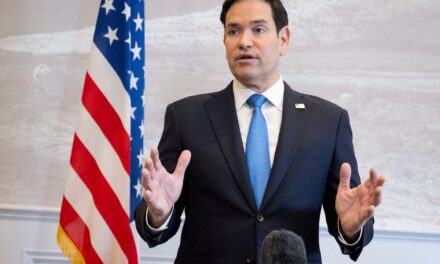Ed Kilgore has an outstanding piece in New York magazine that explains “why politics is so insanely complicated in 2025.” Reading it, I thought it was a great explanation of why it has become so difficult to write about the Trump administration. It isn’t exhaustion or discouragement or resignation. It’s the goddam complexity of nearly every single issue, along with key unknowable variables that make predictions so damn difficult.
If you’re like me, reading Ed’s piece is almost overwhelming. As someone who shares Ed’s vocation, I couldn’t help put myself in his shoes trying to put the piece together, and it made me tired just thinking about it. But he really hit the nail on the head.
Every major news story in the past week had one thing in common: none of it was remotely simple or easy to explain. The basic facts surrounding the U.S. attack on Iran’s nuclear facilities were obscured by walls of secrecy and spin. The New York mayoral primary was hard to predict thanks to the city’s complex ranked choice voting system and the byzantine alliances and rivalries it spawned. And above all, the domestic governance of the country continued to be snarled in arcane judicial, congressional, and executive branch procedures.
This is the exact reason why I did not write articles last week on the attack on Iran’s nuclear facilities or the outcome of the New York mayoral primary. It wasn’t that I didn’t have things I wanted to say; it was that I didn’t have the energy to put what I wanted to say in proper context. When you write on issues like these, you have to build a scaffolding around which you’ll make your key points, but when it’s going to take an hour to build your predicate structure, it can become daunting enough to discourage you from getting started.
Looking back, since Trump’s re-election, I’ve been willing to build some big scaffolding to write repeatedly about the budget reconciliation process and the prospects of the One Big Beautiful Bill. But, as Ed explains, it isn’t easy.
Budget reconciliation bills have their own incredibly obscure and complex set of rules and procedures that confound everyone but a small tribe of budget wonks. There are multiple layers to the development of a megabill, from a budget resolution that sets targets, to “reconciliation instructions” that tell House and Senate committees what to produce in the way of revenues and spending, to all-night Senate “vote-a-ramas” where the minority party gets to offer dozens of symbolic amendments designed to make the majority look bad. Once the assembled bill reaches the Senate, that chamber’s nonpartisan parliamentarian rules on which provisions fail to meet the criteria for inclusion in such bills. Then the majority party will try to put Humpty Dumpty back together by tweaking the offending provisions, or altering other items to make the overall arithmetic work. All this is happening very quickly, and largely behind the scenes. And then the House has to accept changes made by the Senate or the whole wild process more or less starts over.
Figuring out where things stand at any given moment with a reconciliation bill is all but impossible, so people rely on big partisan narratives.
My goal all along has been to accomplish three things. First, to understand and explain this Byzantine process to my readers. Second, to expose the weak points that can be attacked or exploited to make the Republicans’ job harder. And, third, to predict what will happen.
But now that we’re near the end game, with the U.S. Senate readying to take its first votes on the bill, everything has become opaque and very, very hard to game out.
So how can citizens comprehend the consequences until the dust clears and the new laws are fully implemented? They really can’t; it’s all based on partisanship, trust, selective information, and gut instincts. Civics in action it isn’t. And it’s all being done this way because Trump has insisted on making the Big Beautiful Bill a testament to his own power and historical significance.
All along, I’ve insisted that the main reason the One Big Beautiful Bill has a chance to pass is because it’s been set up in a way that, for the Republicans, the consequences of failure are truly catastrophic. This is for many reasons, but none more than the imminent default of the nation’s credit if the debt ceiling isn’t extended. If the Republicans cannot raise the debt ceiling all on their own without any Democratic help, their strategy of enacting Trump’s agenda on a purely partisan and norm-breaking and often illegal basis will get caught up on the rocks. And if they ruin the country’s debt through carelessness or stubbornness, the catastrophe will go global.
Still, the math has never added up on this bill, either in a budgetary sense or in the sense of winning the near unanimous support from GOP members that is required for them to succeed.
One difficulty is precisely the norm-breaking and illegal behavior. This past week, the Senate parliamentarian has thrown out a lot of the bill for violating the rules of budget reconciliation. I’ve known this would happen for months, but I could not predict what would make the cut and what wouldn’t, nor how potentially fatal each ruling might be. And I have always known that the Republicans retain the option to just overrule the parliamentarian and essentially destroy the whole point of the budget reconciliation process. If the alternative is failure and catastrophe, I have always assumed they will take that step.
I’ve been somewhat less concerned with explaining what will be in the bill and why it is good or bad. This isn’t because I don’t care or don’t believe that you care. And it isn’t because it’s impossible to know what will and won’t make it past the cutting room floor. It’s because you can find that information elsewhere from better credentialed sources. I focus on what I can provide that you won’t easily find elsewhere.
But, as Ed points out, the way this bill is being patched together behind the scenes at the last moment, you cannot find good sources for what the bill will contain or ultimately cost. All we can say for sure is that they’re turning all the dials up and down to find a just right Goldilocks solution that can win them the near unanimous support they need. And part of their strategy is to keep their own members in the dark, so it’s hopeless for anyone else to have advance knowledge.
This is all very frustrating for me. It’s not that I find the administration itself exhausting. It’s that the complexity of covering it requires a level of energy I had in my thirties and don’t have in my fifties.
Of course, the final frustration is that I’ve spent 20 years doing this and we have reached this point, which is understandably discouraging. What can stop this downward spiral?






